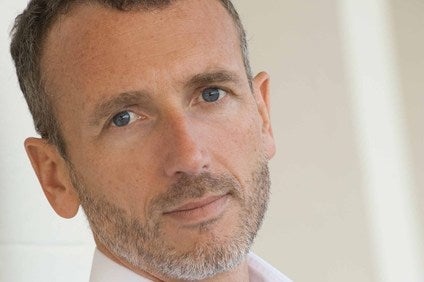
This week, Danone announced it was forming a new division for its operations in Africa and keeping its medical nutrition arm, which had been the subject of takeover speculation. Tesco issued yet another profit warning, but CEO Dave Lewis is convinced the company is taking the right steps for the future and outlined changes to the way the retailer will do business with suppliers. Elsewhere, Kellogg remained coy over union claims it was mulling the closure of two cereal plants in the US. Here is the week in quotes.
“As 2014 draws to an end, I want to re-emphasise that message and reiterate that each of our core businesses – fresh dairy products, waters, early life nutrition and medical nutrition – has a role to play in living up to our mission and achieving the profitable, sustainable growth that is an integral part of our strategy” – Danone CEO Emmanuel Faber comments on the company’s decision to form a new division for its operations in Africa. It is also retaining its medical nutrition arm, which it had been rumoured to be ready to sell.

Discover B2B Marketing That Performs
Combine business intelligence and editorial excellence to reach engaged professionals across 36 leading media platforms.
“Whilst the steps we are taking to achieve this are impacting short-term profitability, they are essential to restoring the health of our business. We will not engage in short-term actions that compromise in any way our offer for customers” – Tesco CEO Dave Lewis talks of the “new commercial approach” it is taking which it hopes will develop stronger supplier relationships while ensuring revenue recognition is “transparent and appropriate”.
“Small businesses are fast approaching the breaking point. They are no longer prepared to put up with these sharp practices. Brands that think they can continue to squeeze their suppliers with impunity may get a nasty shock when what they are doing comes to the attention of their consumers” – John Allan, national chairman for the Federation of Small Businesses comments following a survey of its members which revealed 17% had faced “supply chain bullying” in the last two years.
“I’m more comfortable fighting a battle and talking to people about who we are and what we do for them, rather than people having no idea. On the mainstream shelf, people had no idea. They were looking for milk – and yes we are milk – but they are not willing to pay extra for milk who don’t drink milk” – In an interview with just-food, Scott Wotherspoon, CEO of the UK arm of New Zealand-based A2 Milk Co., reflects on the company’s decision to reposition the brand in the UK.
“We are evaluating our US ready-to-eat cereal manufacturing network and will work to ensure that we are operating the right number of plants – in the right locations – to better meet our current and future production needs, and the evolving needs of our customers” – a Kellogg spokesperson comments when questioned about the Bakery, Confectionery, Tobacco and Grain Millers Association’s claims it is to close two of its US cereal plants.

US Tariffs are shifting - will you react or anticipate?
Don’t let policy changes catch you off guard. Stay proactive with real-time data and expert analysis.
By GlobalData“Our focus, particularly when it comes to some of our exports [that have been] affected, is to try and find new markets for those products. Interestingly, the Russians haven’t stopped whisk[e]y – they like their drink too much to stop some of those exports. But when it comes to some of the sectors that have been affected, such as dairy or mackerel, we have been reasonably successful with mackerel opening new markets, such as Nigeria” – George Eustice, the UK’s minister for farming, food and the marine environment, says UK exporters must look to new markets to replace Russia.
“Dietary guidelines encourage Australians to eat two serves of fruit and five serves of vegetables each day, so food companies are cashing-in on this by clearly highlighting the fruit and vegetable content in their processed products” – Clare Hughes, co-author of a report by Australia’s Cancer Council NSW, says the number of nutritionally unhealthy products that contain fruit and vegetable claims on their packaging is “extremely concerning”.
“We would like to emphasise that in all of its years of business, FREF has always operated under a strong culture of seeking to ensure that it complies with its obligations under Australian consumer law. FREF has always operated ethically, working in partnership with our farming community and delivering a product that satisfies our customers’ needs” – a spokesperson for the Free Range Egg Farms says the company is “disappointed to learn” The Australian Competition and Consumer Commission is starting proceedings against it for “false and misleading” use of the free-range label.
“Fonterra was not ready for a crisis of this magnitude. It had placed the nurturing of a genuine food safety culture in the company on the back-burner and concentrated its attention on production and market share” – an investigation into last year’s botulism recall by Fonterra criticises the dairy giant’s delayed response to safety concerns and a failure to have crisis management procedures in place with relation to the botulism scare last year.





